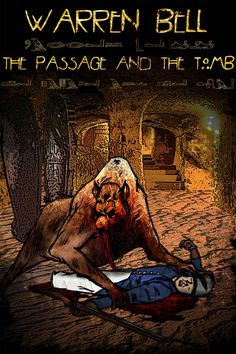This
past weekend, I published something very different from my other works. With
Halloween approaching, I decided to write and publish a horror story. That may
sound about as far from my usual military historical fiction as one can get.
But perhaps not.
Why
would I choose to write horror? I have been fascinated by the genre since I was
a child. My mother loved horror films, and our whole family went to the movies
together. Like Cosby’s Fat Albert and his buddies, I used to crouch behind the
seats and peer between them to watch the scary scenes. I remember watching Lon
Chaney Jr.’s face change from that of a man to that of a wolf through
time-lapse photography. I recall the mummy’s ghost carrying Ramsay Ames into
the swamp until they disappeared. I saw
David Carradine, in my opinion the best Dracula, turn to dust when caught by
the sunlight. We also saw all the horror anthologies like Frankenstein Meets the Wolfman and Abbot and Costello Meet Frankenstein. A latecomer to the scene was
The Creature From the Black Lagoon.
About
the time I became a teenager, an amazing comic book series (actually short
graphic novels) called Tales from the
Crypt appeared on the market. The
werewolves, vampires, and other monsters in these books were convincingly
drawn, and the stories were spine tingling. Unfortunately (for fans of the
series) someone convinced the publisher that he was contributing to juvenile
delinquency, so he pulled the plug on the books. Some years later, the title
was revived on a TV series.
My
new story, The Passage and the Tomb: A Tale of Ancient Horror, takes place in Egypt in the early 1800s. My characters are soldiers
and scientists from Napoleon’s invading army. Okay, so I can’t really suppress
the historical novelist in me. Napoleon’s savants studied and documented the
ancient Egyptian civilization for several years. They essentially invented
Egyptology. What better foils to confront an ancient evil than the explorers
who opened up the longest lasting civilization to the world?
Inadvertently,
my characters free a 4,000-year-old werewolf who had been entombed alive by the
ancients. Will modern firearms protect
them? Or is the power of the timeless monster too great to overcome? Read my
story to find out.
 Warren Bell is an author of historical fiction. He spent 29 years as a
US Naval Officer, and has traveled to most of the places in the world
that he writes about. A long-time World War II-buff, his first two
novels, Fall Eagle One and Hold Back the Sun are set during World War II. His third novel, Asphalt and Blood, follows the US Navy Seabees in Vietnam. His most recent novel, Snowflakes in July, was
released on Kindle on September 15, 2015, and a paperback version will
be following. For more about Warren Bell, visit his website at:
wbellauthor.com or see him on twitter @wbellauthor.
Warren Bell is an author of historical fiction. He spent 29 years as a
US Naval Officer, and has traveled to most of the places in the world
that he writes about. A long-time World War II-buff, his first two
novels, Fall Eagle One and Hold Back the Sun are set during World War II. His third novel, Asphalt and Blood, follows the US Navy Seabees in Vietnam. His most recent novel, Snowflakes in July, was
released on Kindle on September 15, 2015, and a paperback version will
be following. For more about Warren Bell, visit his website at:
wbellauthor.com or see him on twitter @wbellauthor.
 Warren Bell is an author of historical fiction. He spent 29 years as a
US Naval Officer, and has traveled to most of the places in the world
that he writes about. A long-time World War II-buff, his first two
novels, Fall Eagle One and Hold Back the Sun are set during World War II. His third novel, Asphalt and Blood, follows the US Navy Seabees in Vietnam. His most recent novel, Snowflakes in July, was
released on Kindle on September 15, 2015, and a paperback version will
be following. For more about Warren Bell, visit his website at:
wbellauthor.com or see him on twitter @wbellauthor.
Warren Bell is an author of historical fiction. He spent 29 years as a
US Naval Officer, and has traveled to most of the places in the world
that he writes about. A long-time World War II-buff, his first two
novels, Fall Eagle One and Hold Back the Sun are set during World War II. His third novel, Asphalt and Blood, follows the US Navy Seabees in Vietnam. His most recent novel, Snowflakes in July, was
released on Kindle on September 15, 2015, and a paperback version will
be following. For more about Warren Bell, visit his website at:
wbellauthor.com or see him on twitter @wbellauthor. 

